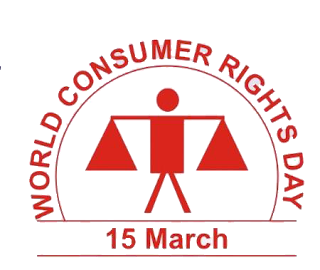World Consumer Rights Day: A Valid Marxist Interpretation
March 15 is annually celebrated
as the World Consumer Rights day (WCRD). It is one and the only day in
the calendar when the world (governing) community tries to show to the
proletariats around the globe that despite their inherent and never ending
romance with the capitalist, they are always dedicated to creating a better,
transparent and accountable world for the proletariats, who in the end would constitute
the labour force, the market and the consumers for the capitalists. Thus the precedence is given to citizens over capitalists
only to serve the interests of the capitalists.
I see WCRD as a tool in the hands
of the governments to promote the interests of the capitalists by annually
reminding people (Proletariats) of their rights as consumers and thereby
covertly pushing them to become consumers and to mint monetary profits for the
capitalists. I know my interpretation of WCRD sounds Marxist but that is how it
really is. In fact, in my opinion, ‘Rights’ is a suffix or prefix, as the case
may be, used when the intention is to promote the term, as a concept, it
follows or is followed by.
The criticism of WCRD and of
consumer rights is valid because the consumer rights, in India and also
probably across the globe, have failed to provide the requisite degree of
protection against unfair trade practices and improper services to the
consumers or prospects. In fact, it has proved to be of more use to the traders
and capitalists than to the consumers and not only in the manner stated above
but in various other ways as well. Consumer forums are being misused by the
capitalists and traders to promote their own businesses by dragging their
rivals to these forums and defaming their products and services. Moreover, the
consumer rights act has not been properly able to include in its ambit the
private hospitals and medical institutions, the site of grossest violations of
consumer rights.
Indian private hospitals are
famous across the globe and especially in South Asia for delivering skilled and
quality services at extremely low prices. However, there is a parallel view
amongst the locals who look at these hospitals and medical institutes as
notorious systems established by capitalists to extract their (proletariat’s)
hard earned money. Our society is flooded with tales of how these hospitals con
people by over rating ailments, extending treatments and by charging excessively
for the unneeded services provided.
The Consumer Protection Act deals
with notorious and unfair trade practices but in practice it has failed to
aware people of their role as consumers in hospitals. The term ‘services’ seems
subsidiary to trade in the act and has thus provided a virtual immunity to the
service sector. The medical sector, which falls under the service sector, has
been further immunised by the nobleness that surrounds the whole profession. The
dual immunity has been causal in almost absolute and gross violation of the
consumer rights and the consumer protection act.
The famous infamous tales of
violations of consumer rights in hospitals have their roots in reality and have
created a negative image of hospitals and of the medical institutes amongst
people. The responsibility now lies upon the government(s) to empower the act,
to include medical institutes in the ambit of the act and to make people aware
of their rights as consumers at hospitals. However, the most significant move
in the direction of checking illicit medical practices would be, mandatory
primary medical education to every individual, making them capable of deciphering
and understanding the scripts of medical test reports so that they could be self-capable
of assessing the seriousness of illness and the cost that may be involved in
treating it. Mechanisms to make hospitals transparent in terms of availability
of services and resources there in should also be created and installed.
To begin with, the government must
first acknowledge that the act has failed on various fronts and also that there
is need to empower and to improve it. Hospitals aren’t the only sites of violations
of the act there are many more. All these sites must be identified and action
must be taken to protect the rights of individuals as consumers else the act
shall be more of a tool in the hands of the capitalists and less of a weapon in
the hands of the consumer.
-Umang


Comments
Post a Comment